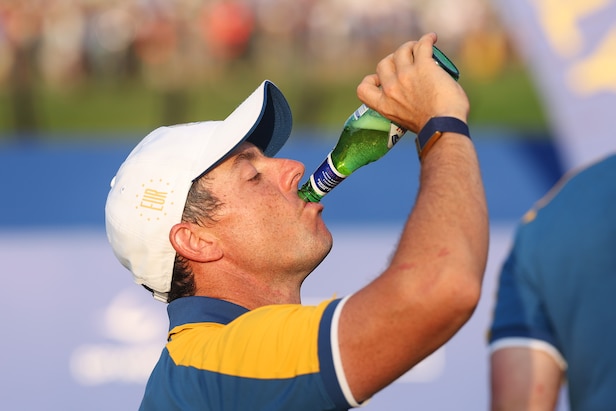ROME — It didn’t sound like Rory McIlroy had any doubts in his mind. And he does know a thing or five about winning Ryder Cups. Seven times the Northern Irishman has been part of Old World squads charged with taking on the New World from across the Atlantic; only twice has he ended up on the wrong side of the final score line.
With that sort of record comes confidence. And, maybe a little inebriated on the adrenaline of the occasion, the four-time major champion chose the winning European side’s post-match press conference at Marco Simone to make a rather bold announcement.
“I’ve said this for the last probably six or seven years to anyone that will listen,” he declared. “I think one of the biggest accomplishments in golf right now is winning an away Ryder Cup. And that’s what we’re going to do at Bethpage [Black in 2025].”
Which is all well and good to think or even say out loud in the afterglow of Europe’s latest victory—their 12th success in the 18 matches that have taken place since the Americans started losing on a consistent basis, beginning at The Belfry in 1985. But the chillier reality tells a tale of just how difficult it will be for McIlroy and 11 of his continental mates to prevail on Long Island two years hence.
If we discount the presence of captain Luke Donald, McIlroy and Justin Rose were this week at Marco Simone the only two survivors from the last time either side managed to wrestle the trophy from home hands. That was as long ago as 2012, the so-called “Miracle at Medinah,” where, on the final day, everything that had to happen for the European side to come back from a 10-6 overnight deficit, duly came to be.
At the time it all looked exceptional, a once-in-a-lifetime occurrence. And nothing that has happened since has done anything to dispel that notion. In the five Ryder Cups that have taken place since that extraordinary day on the outskirts of Chicago, the home teams have won the matches by at least five points and by as much as 10.
So it’s been a while since a home crowd’s celebrations have been silenced. And that trend shows no sign of changing any time soon, if Europe’s latest and comfortable five-point victory this week is anything to go by.
Then again, you never know. McIlroy might just be right. He does talk a good game as well as playing one.
Despite the seemingly inexorable rise of analytics, statistics and a scientific approach to elite professional golf, the game at the highest level remains, at its core, an art form. And few play the game more artistically and intuitively than McIlroy. He talked this week of studying the works of former Roman Emperor, Marcus Aurelius, on the art of stoicism. Which could easily double as prep for Bethpage. McIlroy and the other Europeans will need plenty of that grim-faced quality in the face of what will surely be a loudly hostile American crowd of perhaps unprecedented proportions.
Still, perhaps the most powerful motivation for any visiting team is really not that complicated. McIlroy had something to say on that subject too: “Being part of a losing Ryder Cup team sucks.”
